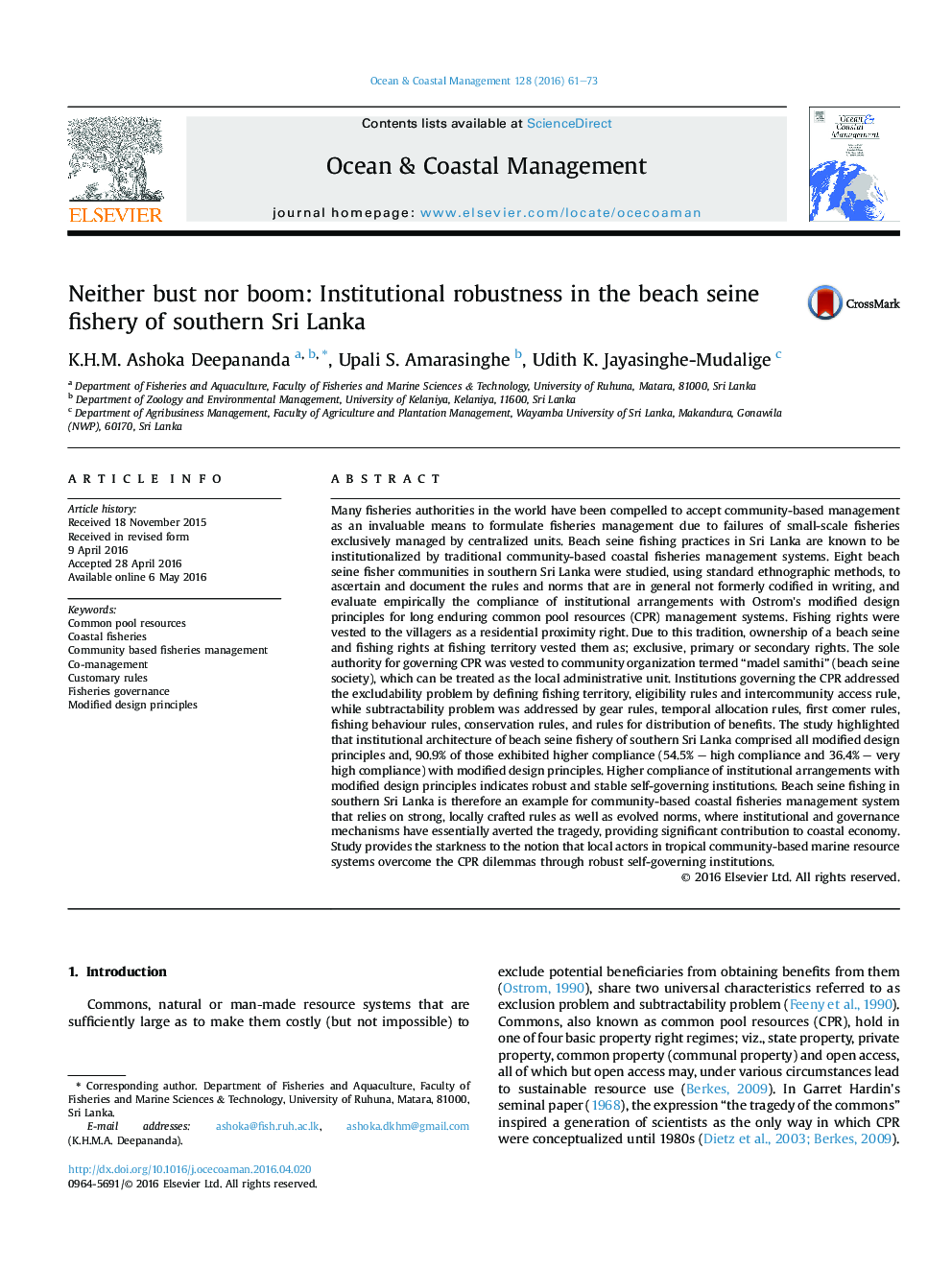| کد مقاله | کد نشریه | سال انتشار | مقاله انگلیسی | نسخه تمام متن |
|---|---|---|---|---|
| 1723349 | 1520501 | 2016 | 13 صفحه PDF | دانلود رایگان |
• Beach seining in southern Sri Lanka is governed through self-governing institutions.
• Institutions address the excludability and substractability problem.
• Institutional arrangements exhibits all Ostrom's modified design principles.
• Institutional architecture exhibits high compliance with design principles.
• Institutional robustness averts the common pool resources dilemma.
Many fisheries authorities in the world have been compelled to accept community-based management as an invaluable means to formulate fisheries management due to failures of small-scale fisheries exclusively managed by centralized units. Beach seine fishing practices in Sri Lanka are known to be institutionalized by traditional community-based coastal fisheries management systems. Eight beach seine fisher communities in southern Sri Lanka were studied, using standard ethnographic methods, to ascertain and document the rules and norms that are in general not formerly codified in writing, and evaluate empirically the compliance of institutional arrangements with Ostrom's modified design principles for long enduring common pool resources (CPR) management systems. Fishing rights were vested to the villagers as a residential proximity right. Due to this tradition, ownership of a beach seine and fishing rights at fishing territory vested them as; exclusive, primary or secondary rights. The sole authority for governing CPR was vested to community organization termed “madel samithi” (beach seine society), which can be treated as the local administrative unit. Institutions governing the CPR addressed the excludability problem by defining fishing territory, eligibility rules and intercommunity access rule, while subtractability problem was addressed by gear rules, temporal allocation rules, first comer rules, fishing behaviour rules, conservation rules, and rules for distribution of benefits. The study highlighted that institutional architecture of beach seine fishery of southern Sri Lanka comprised all modified design principles and, 90.9% of those exhibited higher compliance (54.5% – high compliance and 36.4% – very high compliance) with modified design principles. Higher compliance of institutional arrangements with modified design principles indicates robust and stable self-governing institutions. Beach seine fishing in southern Sri Lanka is therefore an example for community-based coastal fisheries management system that relies on strong, locally crafted rules as well as evolved norms, where institutional and governance mechanisms have essentially averted the tragedy, providing significant contribution to coastal economy. Study provides the starkness to the notion that local actors in tropical community-based marine resource systems overcome the CPR dilemmas through robust self-governing institutions.
Journal: Ocean & Coastal Management - Volume 128, August 2016, Pages 61–73
